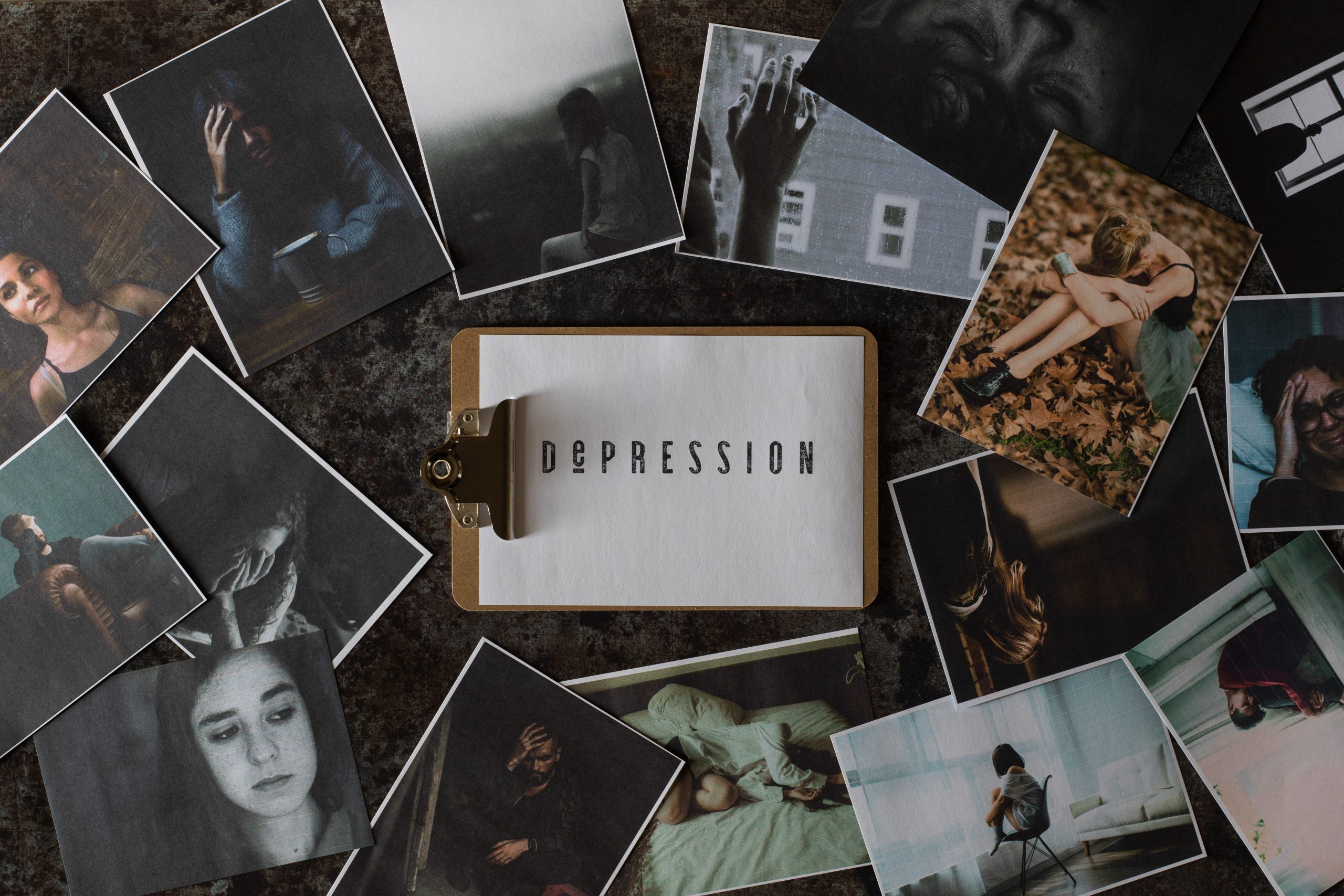

Depression Counselling
Living with depression and the symptoms of depression can feel overwhelming, debilitating and isolating. But, you are not alone. Depression affects 1 in 6 Australians, and the team at Invictus Health are here to help, provide compassionate support, and professional counselling for individuals struggling with depression.
Our counsellors are ready to offer a helping hand to those living with depression. Through our counselling services we empower individuals to navigate through their challenges, build resilience, and embark on a journey towards healing and emotional growth.


Depression can happen to anyone, we are here to help.
Depression does not discriminate and can affect anyone at any time, regardless of age, ethnicity and personal history. Affecting 13% of Australians, it is also the most common mental illness experienced by Australians under 25.
Signs you may be experiencing depression include:
- Persistent feelings of sadness
- Irritability
- Loss of interest or pleasure in activities
- Fatigue or lack of energy
- Sleep disturbances (insomnia or excessive sleeping)
- Changes in appetite or weight
- Difficulty concentrating, thinking and making decisions
- Noticeable changes in physical movement – restlessness or slowed movements
- Recurrent thoughts of death or suicidal ideation
If you are currently experiencing symptoms of depression, please reach out for support below
What is depression?
Depression is a serious and very real mental health condition that at best challenges someone’s quality of life and can, at its worst lead to death. Depression can cause significant decline in someone’s mental well-being, but also their physical health. Someone living with depression may experience challenges in all aspects of their life, from relationships, to work, though to becoming impartial to activities they were previously passionate about.
Depression is clinically diagnosable mental illness that impacts a person beyond a sense of sadness. Signs and symptoms of depression and a bit about them:
- Persistent feelings of sadness: Individuals living with depression may experience enduring feelings of sadness that seem unshakable or unable to stop. This sadness may persist for days, weeks or even longer, affecting daily functioning and emotional well-being.
- Loss of interest or pleasure in activities: A hallmark of depression is the loss of interest or pleasure in activities once enjoyed. Hobbies, social interactions, and even responsibilities may feel like a burden and uninteresting, this can lead someone to withdraw from peers and friends.
- Fatigue or lack of energy: People with depression often feel a persistent and overwhelming sense of fatigue and low energy to initiate tasks. Daily tasks that were once manageable may become exhausting, leading to a decrease in productivity and engagement in life.
- Sleep disturbances: Depression can disrupt sleep patterns, leading to insomnia where individuals struggle to fall or stay asleep, or excessive sleeping, where they may find it challenging to get out of bed.
- Changes in appetite or weight: Depression can cause fluctuations in appetite, leading to significant weight loss or weight gain. Some individuals may lose interest in eating, while others may begin eating to seek a sense of comfort and fulfilment.
- Feelings of worthlessness or guilt: People with depression often experience feelings of worthlessness or excessive guilt, sometimes over what may seem to others as minor issues. This can further impact their self-esteem and confidence.
- Difficulty concentrating or making decisions: Depression can impair cognitive functioning, making it hard to concentrate on tasks or make even simple decisions. Individuals may feel mentally foggy or experience memory difficulties.
- Noticeable changes in physical movement: Some people with depression may exhibit restlessness and nervous energy. Conversely, others may feel physically and mentally slowed down.
- Recurrent thoughts of death or suicidal ideation: Living with depression can lead to persistent thoughts of death, dying or suicidal ideation. These thoughts can be distressing and dangerous, requiring immediate attention and professional intervention.
- We believe it is important to remember that, although depression has common symptoms, many people present differently and have different experiences while living with depression. Varying from difficulty getting out of bed in the morning and struggling with daily tasks, to seeming (at least to the outside world) to be very well put together and accomplished, but being plagued by internal monologues of self harm and suicidality.
If you find yourself experiencing any of these symptoms or you can relate to the descriptions, it’s crucial to seek support, you can start with your GP or a mental health service. Depression is more common than you may know, and reaching out to a qualified mental health professional can make a significant difference in your well-being.
Don’t hesitate to seek support and guidance on your journey towards healing and recovery. We are here to help, and we will provide you with the resources you need to help you navigate through this challenging time.


What can cause depression?
The exact cause of depression remains unclear, however it is often connected to the combination of varying factors. Biological, chemical, situational and environmental factors can play a role in the development and onset of depression.
- Genetic predisposition (biological), is a family history of depression that may increase the risk.
- Life events (situational), such as traumatic experiences, loss of a loved one, financial difficulties, or major life changes may also be at play during the onset of depression.
- Substance abuse (environmental) can play a large role as drug and/or alcohol abuse can exacerbate emotional experiences and encourage the development of depression.
- Excessive stress and anxiety (environmental) may lead to the onset of depression, due to its connection to physical health factors like chronic Illness.
- Dealing with long-term health issues (situational) can contribute to depressive feelings, and when these feelings persist and we are unable to cope, they can lead to the onset of depression.
Understanding these potential causes helps in identifying and addressing the factors that may have impacted the onset of depression, allowing you to receive appropriate support to manage depression effectively.
Types of depression
Depression, as with other mental illnesses, has a number of different types/presentations:
- Major Depressive Disorder (MDD): Also known as ‘clinical depression’, this is the most common type of depression. It involves persistent and intense feelings of sadness and loss of interest or pleasure in daily activities. MDD affects various aspects of life, causing significant distress and impairment.
- Persistent Depressive Disorder (PDD): More formerly known as ‘dysthymia’, PDD is characterised by a milder but chronic form of depression. Symptoms persist for at least two years, and individuals may additionally experience periods of MDD during this time.
- Seasonal Affective Disorder (SAD): SAD is a type of depression linked to seasonal changes, typically occurring during fall and winter when there is less sunlight. Individuals typically experience symptoms like fatigue, increased sleep, and weight gain.
- Postpartum Depression (PPD): PPD affects some new mothers after childbirth, leading to feelings of extreme sadness, fatigue, and difficulty bonding with their new baby.
- Psychotic Depression: This type of depression combines depressive symptoms with psychosis, such as hallucinations or delusions.
**Symptoms of depression can also present in anxiety, bipolar disorder, schizoaffective disorder, times of grief and loss, and trauma
Understanding the various types of depression can help individuals and healthcare professionals tailor appropriate treatment plans and support for those dealing with these conditions. If you suspect you may be experiencing any form of depression, seeking professional help can lead to proper diagnosis and effective management.


Why book Invictus Health for Depression Counselling
Invictus Health is home to a number of experienced, empathetic, neuroaffirmative and trauma informed specialists, and our wonderful counsellors are no exception. We pride ourselves on our holistic approach to counselling. Having worked with individuals living with depression, and with depression related challenges, we understand that each individual’s journey is unique, so we tailor our counselling techniques to meet your specific needs.
Our counsellors will help you by using various approaches, include:
- Talk therapy
- Cognitive behavioural therapy (CBT)
- Mindfulness Based Cognitive Therapy (MBCT)
- Acceptance and commitment therapy (ACT)
- Motivational interviewing (MI)
We believe in the power of therapeutic relationships, as well as empowering individuals to confront and cope with depression effectively, fostering lasting positive changes in their lives. By focusing on your story, emotions, and perspectives, our counsellors will walk alongside you on your journey to help you discover your inner strength and resilience.


Don’t be afraid to reach out
Counselling is an effective way to manage anxiety and stress. Our counsellors will provide you with coping strategies to help you manage your symptoms and improve your overall well-being.
We understand that taking the first step can be challenging and scary but once you’ve taken that one, but you don’t have to face anxiety and stress alone, we’ll help you walk the rest of the way.
Reach out to us today and let us support you in finding the peace and resilience you deserve.
